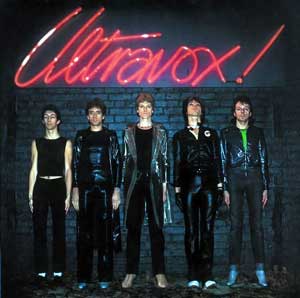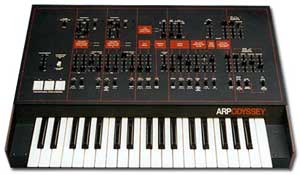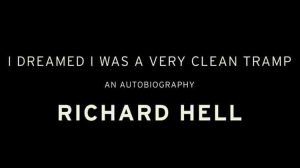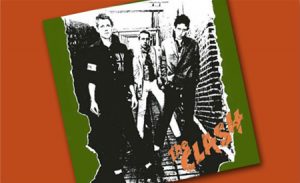They’re back! The often-awful eighties with the pre-school neon colors and the radio infested with neo-synth-pop bubblegum bands. Although a few groups like Phoenix, the Killers and the recent stellar release from Empire of the Sun have picked up where the best of the eighties left off, the majority of time I’m left looking for who to blame for the atrocities I’m forced to tolerate while attempting to purchase a pair of blue jeans. I, like many people my age, was a synth-pop practitioner, playing in several ill-fated synthesizer based bands of my own during their height in the late eighties, and therefore cringe that much more when I’m reminded of the dreadful tripe I was guilty of unleashing on similarly ignorant audiences at high-school talent shows and weekend parties in the late eighties. However, like any genre of music, the beginnings are usually more interesting than the Madonna-laden ends.
 Therefore, as a reluctant member of a large and perennially embarrassed synth-pop fraternity, I am going to share with you the identity of the main culprit, the name of the man to blame for the continued atrocities of eighties music. His name is John Foxx. No, not the Ray Charles impersonating, gold digging Jamie Foxx, but John Foxx. He was the front man and driving influence for a lesser known but radically influential punk band of the late seventies called Ultravox, and he was the one than invented no fewer than two of the genres we most associate with the sound of the eighties. Way back in the late seventies, the Clash may have been “the only band that matters,” but Ultravox changed the world.
Therefore, as a reluctant member of a large and perennially embarrassed synth-pop fraternity, I am going to share with you the identity of the main culprit, the name of the man to blame for the continued atrocities of eighties music. His name is John Foxx. No, not the Ray Charles impersonating, gold digging Jamie Foxx, but John Foxx. He was the front man and driving influence for a lesser known but radically influential punk band of the late seventies called Ultravox, and he was the one than invented no fewer than two of the genres we most associate with the sound of the eighties. Way back in the late seventies, the Clash may have been “the only band that matters,” but Ultravox changed the world.
How does one go about creating a musical genre? Simple: take any strange music that exists only on the fringes of society and make it more popular than Jesus. The Beatles did it for British Pop, The Velvet Underground did it for Punk Rock, Nirvana did it for Grunge and, in 1977, John Foxx did it for the eighties.
Although electronic synthesizer based music had been around for quite some time, it was almost exclusively relegated the realms of experimental music, listened to by well-educated Classical music geeks and the nerds who attended art school, but lacking any real public appeal for it’s bizarre sounding electronic compositions. Bands like Kraftwerk, who would later write some pretty solid pop songs were, in 1977, using synthesizers mainly to create experimental soundscapes more than songs. Meanwhile, Progressive rock bands like Yes and Pink Floyd had been using Moog synthesizers the fatten their sound for several years, but the pretentiousness of progressive rock with their concept albums, uber-long instrumental solos five hour concerts that wore out even the most reverent fans and built a wall (pun intended) between them and much of the youth of the day, especially the ones who weren’t taking copious amounts of acid.
1n 1977, if you were an angst ridden teenager, it wasn’t Pink Floyd or Kraftwerk tapes that filled your car’s cassette player, it was Punk Rock. Punk reigned supreme in ’77, the year the Sex Pistols released “God Save the Queen,” the Ramones followed their initial release with a pair of aggressive and brilliant records and the debut album from The Clash dropped in the UK. Yet, somehow, in the midst of all the Punk frenzy, Synth-Pop was born out from a burgeoning English punk rock band with an extra track to fill on their eight track second album. That song would alter the course of music.
 Ultravox recorded their second album titled Ha Ha Ha! for Island Records, a disappointing record as far as sales, but a record that stands in time as a pivot point in the history and direction of popular music for the next decade. Side one of the album is comprised mainly of standard Punk singles like “Rockwrok” and “The Frozen Ones” that anyone might mistake for a cut off a Sex Pistols record. In fact, Foxx has often been accused of nicking his vocal style from John Lydon, aka Johnny Rotten; however, Fox’s phrasing is more “reminiscent” of Lydon’s later style perfected in his later bands like Public Image Limited than it is of his contemporary Sex Pistols tracks, so who nicked what from whom is still in question. Still, Ultravox’ punk sound, while raw and worthy of a solid album side, was nothing groundbreaking from the upstart band.
Ultravox recorded their second album titled Ha Ha Ha! for Island Records, a disappointing record as far as sales, but a record that stands in time as a pivot point in the history and direction of popular music for the next decade. Side one of the album is comprised mainly of standard Punk singles like “Rockwrok” and “The Frozen Ones” that anyone might mistake for a cut off a Sex Pistols record. In fact, Foxx has often been accused of nicking his vocal style from John Lydon, aka Johnny Rotten; however, Fox’s phrasing is more “reminiscent” of Lydon’s later style perfected in his later bands like Public Image Limited than it is of his contemporary Sex Pistols tracks, so who nicked what from whom is still in question. Still, Ultravox’ punk sound, while raw and worthy of a solid album side, was nothing groundbreaking from the upstart band.
Side two is an all together different story. As Ultravox’ unsuccessful first album had been more of a glam rock attempt produced by Brian Eno of Island’s Roxy Music, thus the band had pressed early on to experiment with different sounds and styles. Now, with Ha!-Ha!-Ha!, instead of David Bowie and Roxy Music, John Foxx was taking his cues from American experimental bands like Television and the Talking Heads, but combining it with Punk attitude, Punk songwriting and Punk sensibilities. Just like that, British New Wave had found its form.
The interesting melodic choices and additional instrumentation, from a saxophone and electric violin, to the band’s first synthesizer, an ARP Odyssey purchased with the advanced from the first album, shifted the solid Punk Rock sound into the prototype for all the British New Wave bands to follow. Bands such as The Cure, Joy Division, The Smiths and Duran Duran would mimic Ultravox on their earliest recordings. Nick Rhodes of Duran Duran, the world’s most popular and best selling New Wave band in history, stated, “John Foxx’s Ultravox were the link between punk and what came next. Back then you didn’t see too many acts with synthesizers. I saw Devo who were very entertaining but somehow not as gritty as Ultravox. They were more manufactured in their sound, whereas Ultravox had style and edge. They were altogether something extraordinary and innovative. I guess Duran Duran wouldn’t have existed had we not Ultravox,” and John Taylor added, “They definitely put a new spin on things – they had the energy of a good punk band, but a hi-tech, machine age, future-world layer on top that made them different – the violin was different too. And the rhythm section. They were like the Velvet Underground of our generation.”
But British New Wave is only one genre. A second and truly innovative genre was created when the band chose for its final track on the album a cut titled,” Hiroshima Mon Amour.” On a whim, the band decided to use their new synthesizer they to produce almost all of the backing music. They then choose to use a Roland TR-77 drum machine for the rhythm track to enhance the mechanical futuristic feel of the song. The resulting track was the first recorded synth-pop song and was the major influence for all electro synth-pop groups to follow such as New Order, Orchestral Maneuvers in the Dark (OMD), Pet Shop Boys, and a young art school engineer named Vince Clark who would go on to form a few bands, namely Depeche Mode, Yaz and Erasure.



Leave a Reply